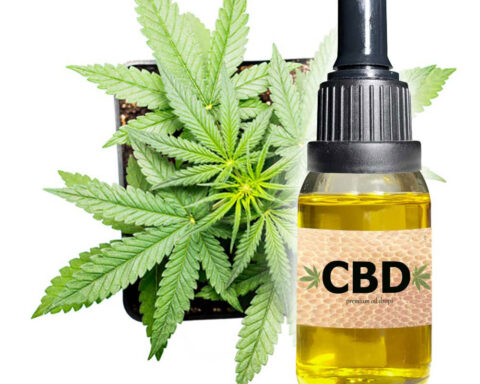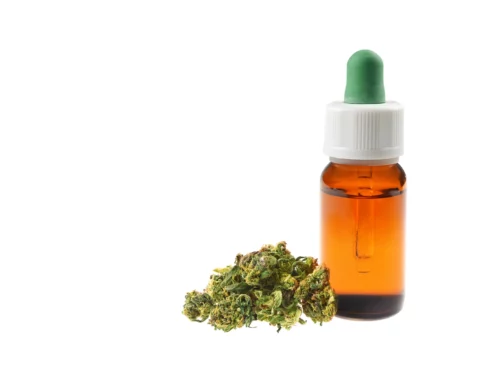The quest for weight loss is increasing, and people are looking for different ways to lose weight. Some want to be fit, others seek to manage health conditions, and others are motivated by societal standards to have a certain ideal weight. While a few weight management tips work, most do not result in positive effects. What’s more, the few that work have their fair share of negative side effects. Some people seek natural alternatives like CBD oil to manage weight. However, it is worth noting that there is not enough scientific evidence to credit CBD oil for weight loss, and the FDA has also not approved CBD oil for weight management. Still, if you choose to take CBD oil for weight loss, consult your doctor to know the right dosages. Here is everything you need to know about CBD and weight loss.
What Makes Weight Management a Hot Topic?
Weight loss has become a hot topic across the industries, and the weight management field ranks among the richest industries, accruing billions of dollars annually. Current trends show that people’s perception of weight has changed, and what appeared like the ‘ideal’ weight many years ago has changed and is viewed as obese. Besides, the beauty industry is putting pressure on people to lose weight. Weight management is an indicator of good health. Most chronic conditions like heart disease and diabetes type two are related to weight, whereby obese people are more susceptible to these conditions. As a result, people are more weight-conscious and determined to lose weight. The other driver of weight management, especially using natural alternatives, is the failure of weight loss management supplements to produce the desired results. People are after CBD oil since it appears well-tolerated and ideal for many conditions.
The Basics About CBD Oil
CBD oil is a chemical compound from the hemp plant and is one of the many active components of cannabis plants called cannabinoids. Although it can be extracted from marijuana and hemp, hemp-derived CBD oil is preferred and deemed legal by the Farm Bill, especially if it has less than 0.3% THC. CBD oil comes as tinctures, softgels, vapes, pre-roll buds, topicals, and edibles, including tablets, mints, and gummies. For most of these products, you can have the following CBD formulations;
Full-spectrum CBD
This type contains terpenes, flavonoids, and multiple cannabinoids, including CBD, CBT, CBN, CBG, and the psychoactive THC. It is linked to the full entourage effect of multiple cannabinoids.
Broad-spectrum CBD
Broad-spectrum CBD has many components as full-spectrum but does not contain the psychoactive THC. It is also linked to the full entourage effect but may not cause the ‘high’ effect.
Isolate-based CBD
Contains only CBD and lacks other cannabinoids, terpenes, or flavonoids.
Does CBD Oil Affect Weight- What Studies Say?
Although CBD oil has attracted much hype today, much remains unknown about this cannabinoid. One such thing is the effect of CBD oil on weight, whether it increases or reduces weight. Currently, there is insufficient scientific evidence to show how CBD oil affects weight, and the available studies are inconclusive. While some show that CBD oil might cause weight increment, others suggest that CBD oil might cause weight loss. These studies capitalize on reduced appetite, browning of white cells, and increased metabolism effects of CBD oil that might influence weight loss, as discussed in this article. Here is detailed information about CBD and weight management.
CBD Oil and Appetite- Do They Cause Weight Loss?
It is uncertain how CBD oil affects appetite. Some CBD users claim that the cannabinoid helped improve their appetite, while others feel that taking CBD oil reduced their appetite. For instance, one study by Zürcher, (2022) records that when caregivers who had given children CBD oil were asked how the cannabinoid affected the children, they reported an increase in weight. From these results, CBD oil might seem like a weight gain booster, but there is a need for further studies to verify CBD oil’s effect on appetite. Another research by Iffland & Grotenhermen, (2017) that featured children with Dravet Syndrome being given 11.4 mg per pound of bodyweight indicated that while most children experienced increased appetite, some lost their urge to eat. Consequently, the effect of CBD oil on appetite is yet to be established. Advances research is necessary to claim that CBD oil might increase or lower one’s weight.
CBD Oil and Browning of White Cells- Could They Cause Weight Loss?
The human body has two types of fat cells, brown and white. The former is linked to weight loss since they increase calorie burning. Therefore, the higher the number of brown fat cells, the higher calorie burning and weight loss rate. According to Romero-Zerbo, (2020), CBD oil could influence the browning of white cells, boosting weight loss. Nonetheless, there is a need for further scientific studies with enough evidence to show that CBD oil might help with weight loss by promoting browning of weight loss. In the meantime, consumers should consult their doctor before using CBD oil for weight management.
CBD Oil and Metabolism- Could They Cause Weight Loss?
Much remains unknown about CBD oil, including whether it alters metabolism. However, one study by Koch, M. (2017) claims that CBD oil increases metabolism. According to the study, cannabinoids like CBD bind to the cannabinoid receptors CB1 and CB2, increasing metabolism and boosting weight loss.
Conclusion
The hype around weight management has increased, and many people are after alternative methods to losing weight, including CBD oil use. Can CBD oil promote weight loss? Some initial research suggests that CBD oil may increase metabolism and promote the browning of white cells, ultimately helping with weight loss. However, studies are mixed on the effect of CBD oil on appetite, and while some claim the cannabinoid may cause increased appetite, others feel that it can lower appetite, contributing to weight loss. There is insufficient scientific evidence to claim that CBD oil can increase or lower a person’s weight. What’s more, CBD products are unregulated by the FDA, and there is no recommended CBD oil dosage, so whoever chooses CBD oil for weight management should consult his doctor beforehand.
References
Zürcher, K., Dupont, C., Weber, P., Grunt, S., Wilhelm, I., Eigenmann, D. E., … & Fenner, L. (2022). Use And Caregiver-Reported Efficacy Of Medical Cannabis In Children And Adolescents In Switzerland. European Journal Of Pediatrics, 181(1), 335-347.
Iffland, K., & Grotenhermen,
F. (2017). An Update On Safety And Side Effects Of Cannabidiol: A Review Of
Clinical Data And Relevant Animal Studies. Cannabis And Cannabinoid Research,
2(1), 139-154.
Romero-Zerbo, S. Y., García-Fernández,
M., Espinosa-Jiménez, V., Pozo-Morales, M., Escamilla-Sánchez, A., Sánchez-Salido,
L., … & Bermúdez-Silva, F. J. (2020). The Atypical Cannabinoid Abn-CBD Reduces
Inflammation And Protects Liver, Pancreas, And Adipose Tissue In A Mouse Model
Of Prediabetes And Non-Alcoholic Fatty Liver Disease. Frontiers In Endocrinology, 11, 103.
Koch, M. (2017). Cannabinoid
Receptor Signaling In Central Regulation Of Feeding Behavior: A Mini-Review. FrontiersIn Neuroscience, 11, 293.
- Is Mushroom Coffee Worth the Hype? An Expert’s Take - April 19, 2024
- Missionary Position – Least Likely To Bring You To Climax - April 7, 2023
- Vibrators could put you in Jail - March 31, 2023









